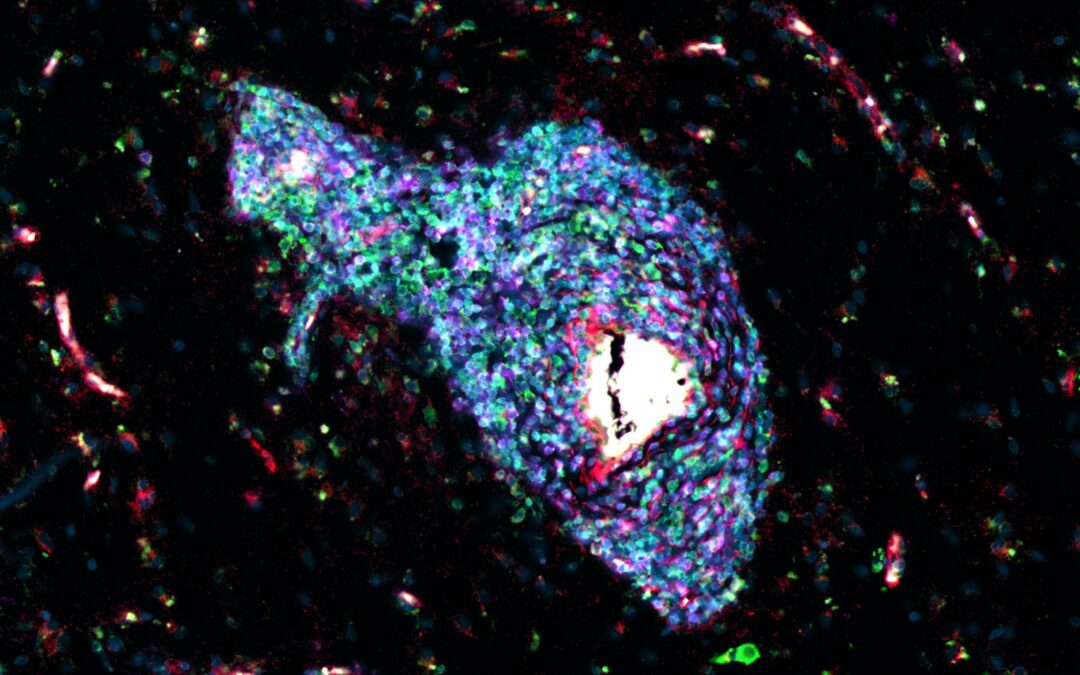Authors: Aurora Pignata, David Frieser, Carmen Gonzalez-Fierro, Cheng-Chih Hsiao, Hendrik J. Engelenburg, Marine Alis, Ilan Fijalkow, Vincent Cazaentre, Lucie Nozeran, Romain Miranda-Capet, Eloïse Dufourd, Thaïs Vermeulen, Amel Aïda, Carole Le Coz, Klaas Van Gisbergen, Nicolas Blanchard, Jörg Hamann, Joost Smolders, Roland S. Liblau*, Frederick Masson*
Relapsing-remitting multiple sclerosis and progressive multiple sclerosis follow different courses. Although both forms of the disease are caused by an attack of the immune system on the nervous system, the exact role of different types of immune cells remains poorly understood.
In this study, Pignata and colleagues investigated the role of a specific type of immune cell, called tissue-resident CD4+ memory T cells (Trm CD4+ cells), in progressive MS. The researchers found that these cells were present in inflamed areas of the brain in both mice with an experimental model of MS and in people with PPMS.
In brains affected by PMSS, most of these CD4+ Trm cells exhibited highly inflammatory behaviour, similar to that observed in mice with chronic MS. When scientists used genetic or pharmacological approaches to eliminate these cells in mice, the symptoms of the disease improved — but only if another group of immune cells, peripheral CD4+ T cells, were also suppressed.
These findings suggest that CD4+ Trm cells may play a key role in the development of progressive MS.
Link to the article : https://www.science.org/doi/10.1126/scitranslmed.adp8109

